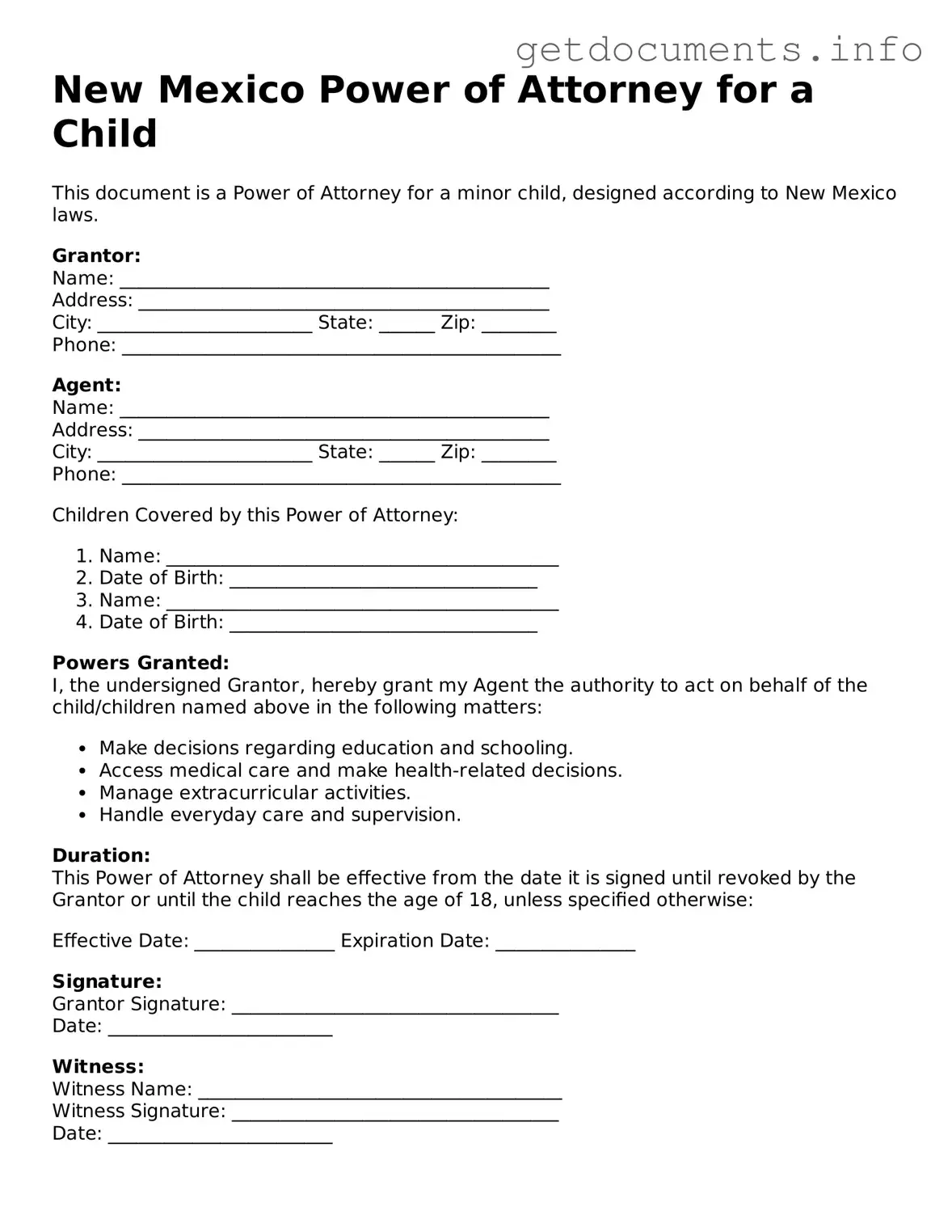Free Power of Attorney for a Child Template for New Mexico
The New Mexico Power of Attorney for a Child form allows a parent or legal guardian to designate another individual to make decisions on behalf of their child. This legal document is essential for ensuring that a trusted person can act in the child's best interests when the parent is unavailable. For those needing to fill out this form, click the button below.
Access Power of Attorney for a Child Editor

Free Power of Attorney for a Child Template for New Mexico
Access Power of Attorney for a Child Editor
Got places to be? Complete the form fast
Fill out Power of Attorney for a Child online and avoid printing or scanning.
Access Power of Attorney for a Child Editor
or
⇩ PDF File
